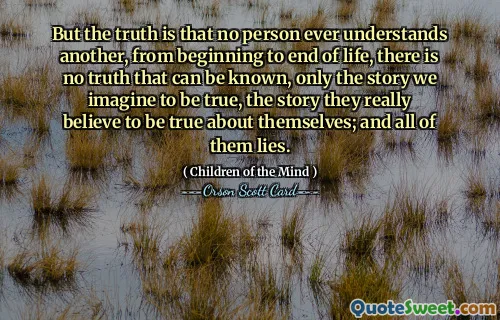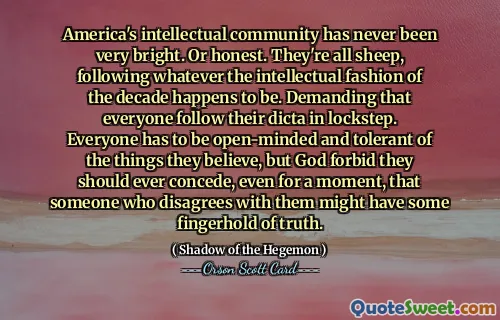You know I hate, detest, and can't bear a lie, not because I am straighter than the rest of us, but simply because it appals me. There is a taint of death, a flavour of mortality in lies -which is exactly what I hate and detest in the world -what I want to forget. It makes me miserable and sick, like biting something rotten would do. Temperament, I suppose.
The quote expresses a deep aversion to lies, which the speaker associates with death and decay. The speaker clarifies that their disdain for dishonesty is not born from moral superiority, but rather from a visceral reaction to the negativity that lies bring. Just as the taste of something rotten can evoke feelings of sickness, lies evoke a sense of despair and discomfort in the speaker, highlighting a personal temperament that shuns deceit.
This perspective reveals a profound connection between truth and life for the speaker, suggesting that dishonesty tarnishes the purity of existence. The abhorrence of lies may stem from a longing for authenticity and a desire to escape the despair that lies tend to propagate. As the author, Joseph Conrad, explores themes in "Heart of Darkness," this assertion underscores the destructive power of falsehoods and their capacity to darken the human experience.


